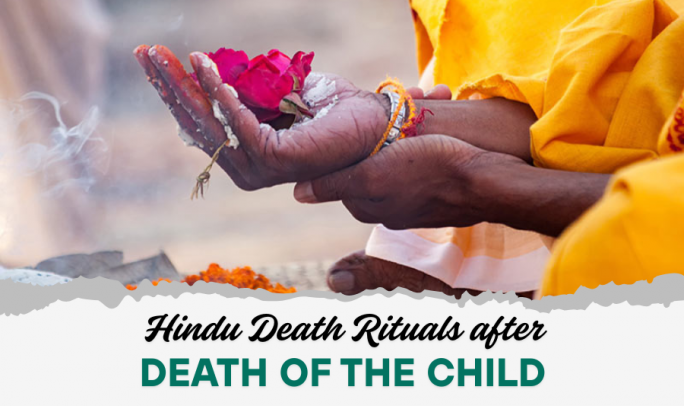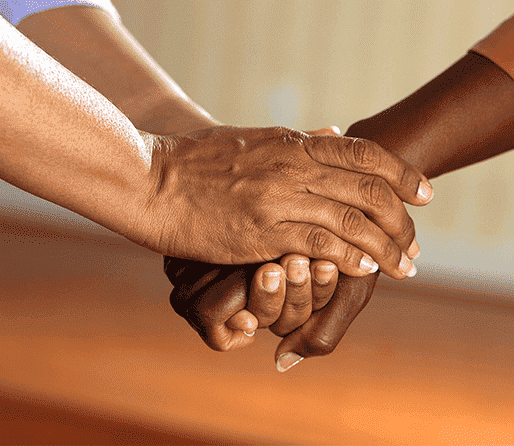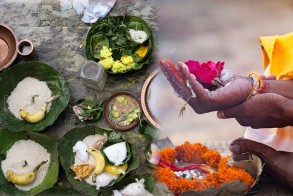Lastjourney Blog
Hindu Death Rituals after Death of the Child

 Table of Contents
Table of Contents- What is the belief of Hindus about Death?
- Core Beliefs About Death in Hinduism:
- What happens when a family loses a child in the Hindu Religion?
- Decomposing the remains after the demise of a child in the Hindu Religion
- What are the significant Hindu Death Rituals For Children?
- Right Way of Decomposing the Remains After the Demise of a Child in the Hindu Religion
- Final Thoughts
Processing the grief of losing a beloved one is always tough for the near and dear ones. But when a family loses a child, it becomes unbearable. In different religions, the final journey of a child is executed in different ways.
Here are the key rituals that take place in a home of the Hindu Religion.
What is the belief of Hindus about Death?
The basic idea in Hinduism's belief system about death is rebirth. The belief most of the Hindu followers hold is that after death, the soul reincarnates in a different body. Only the physical body of the departed is lost in the form of energy in the universe, according to the religion, but the soul endures and keeps recycling until it finds salvation and serenity. Numerous lifetimes may be required to complete the continuous cycle of birth and death.
Additionally, the soul tries to obtain a closer relationship with the Hindu God, Brahma, with each life that passes. Hinduism's belief in death holds that a person's next incarnation will be determined by their past deeds that are called Karma.
Hinduism has a profound and spiritual perspective on death, centered on the concept of rebirth and karma.
Core Beliefs About Death in Hinduism:
- Reincarnation (Punarjanma): After death, the soul (Atman) reincarnates in a different body.
- Fickleness of Body: Only the physical body perishes; the soul continues its journey in the cosmic cycle.
- Continuous Cycle of Karma: The next birth is determined by past deeds or karma.
- Spiritual Evolution: With each life, the soul aims to come closer to Brahma, the Supreme God in Hinduism.
- Moksha / Salvation (Liberation): The ultimate goal is to break free from the cycle of birth and death and attain liberation.
These beliefs provide comfort and meaning to bereaved families, even in times of immense loss.
Also Read, How Long Can a Dead Body Be Preserved in a Freezer
What happens when a family loses a child in the Hindu Religion?
Right after the demise of a child in a Hindu family, a funeral takes place. In a dignified funeral, the following rituals are performed by the close family members of the child.
- Funeral, in Hinduism, is a remembrance ceremony of the departed soul. The deceased body of the child will be placed in a respectful manner, and all the attendees will visit the home or other location where the funeral ceremony is taking on.
- Usually attendees wear a plain and simple white costume during the funeral ceremony but in a child's funeral, the theme could be different as the concept of mourning a death has shifted to celebrating the life.
- According to the Hindu Scriptures, the lead male member of the family performs the rituals included in the funeral of a child. It could be embellishing the human remains with garlands and flowers, lighting a diya near the head and chanting Mantras for the peace of soul as well as the aching hearts of mourners.
- In the funeral ceremony, the attendees can also share the beautiful memories created with the departed soul if they want to.
Decomposing the remains after the demise of a child in the Hindu Religion
Hindus traditionally bury rather than cremate children under a specific age, usually up to two years. The thought behind it is, the children are considered pure and unattached to their bodies immediately after death. Apart from that, it is believed that the soul of the departed child have not yet gone through the entire cycle of karma. This is the foundation of this practice (choosing burial over Cremation). In comparison to the adults and elders, there are less number of rituals regarding the funeral of a child. The family of the deceased can choose a peaceful burial ground for this purpose.
Apart from this practice, some families believe in burying the dead body in a sacred water body. But in nearly all the states of India, it is prohibited.
What are the significant Hindu Death Rituals For Children?
For close family members, grieving the loss of a loved one is always unbearable. However, it becomes very intolerable for a family when a child is lost. Various religions have varied ways of handling a child's last voyage. Along with the spiritual ideas that underlie them, these are the main Hindu child death rites that are performed in the homes of Hindus.
Respectful Placement: The child’s body is respectfully arranged for the funeral ceremony.
Visitors & Attire: Attendees usually wear simple white clothing, but in a child’s funeral, this can vary. The mood is often less mournful and more reflective, focused on celebrating a short but cherished life.
Role of the Lead Male: Traditionally, the senior male family member leads the rituals.
Also Read, Exploring Cremation Services in Different Religions
Ritual Elements May Include
- Decorating the remains with flowers and garlands
- Lighting a diya (lamp) near the head of the child
- Chanting peaceful Vedic mantras
- Offering prayers for soul’s peace and family’s healing
- Sharing Memories: Attendees may share stories, memories, or moments that celebrate the departed child’s life.
These rituals help channel grief into remembrance, honoring the innocence and divinity of the child’s soul.
Right Way of Decomposing the Remains After the Demise of a Child in the Hindu Religion
Burial Over Cremation: Hindus traditionally bury rather than cremate children below a specific age, generally up to two years old.
Reasons Behind Burial: Infants are considered pure and spiritually unattached to the body.
Karma Cycle: It’s believed that young children haven’t yet undergone the full karmic cycle, hence, cremation is not needed.
Religious Scriptures: Burial is more spiritually suitable for young, innocent souls.
Final Thoughts
Losing a child is an emotional and spiritual tragedy, but Hindu death rituals for children aim to offer solace, peace, and spiritual closure. These rituals are rooted in love, purity, and deep philosophical beliefs.
The entire process — from understanding death as part of a larger karmic cycle to respectfully bidding farewell — helps families mourn with dignity and hope for a better rebirth for the departed soul.
Your email address will not be published. Required fields are marked *












